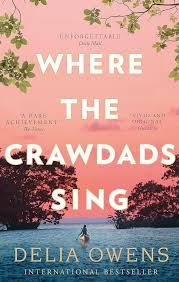53. Missing Link
byMissing Link, the pivotal chapter of 1970, presents a tense courtroom scene where the defense calls its final witness, Tim O’Neal, whose testimony holds significant weight in challenging the prosecution’s case against Kya Clark. O’Neal, a respected and quiet shrimping boat operator, provides crucial information by confirming he had seen a boat, similar to Miss Clark’s, near the crime scene on the night of Chase Andrews’ death. However, he admits that the darkness of the evening prevents him from positively identifying it as Miss Clark’s boat, introducing reasonable doubt into the prosecution’s claims that she was present at the scene of the crime. This testimony questions the reliability of the prosecution’s evidence, which had been based on witness accounts of spotting Miss Clark’s boat, a type that was not unique in Barkley Cove. This sets the stage for the defense’s argument that the evidence against Miss Clark is circumstantial, allowing for a broader examination of her innocence.
The prosecution, led by Eric, uses a carefully orchestrated approach to sway the jury’s perception of Miss Clark, framing her as a potential murderer based on her background and the emotional loss the town has experienced following Chase Andrews’ death. Eric emphasizes the community’s grief and outrage, attempting to paint Miss Clark as a dangerous figure capable of committing such a crime, largely due to her life in the isolated marshes. By leaning into the emotional undertones of the case, he aims to create a narrative that ties her background, her reclusive lifestyle, and her perceived “otherness” to the crime. He does not present solid proof but instead builds a case grounded in emotional appeal and circumstantial connections that attempt to lead the jury to conclude she is the culprit simply because she fits a certain narrative.
On the other hand, Tom, the defense attorney, delivers a more grounded and logical argument to the jury, urging them to focus on the facts rather than allowing community biases and prejudices to cloud their judgment. He challenges the notion that Miss Clark’s solitude and life in the marsh could serve as proof of guilt, pointing out that these same qualities may have led to her unjust vilification by the town. Tom appeals to the jury’s sense of fairness, reminding them that the evidence against Miss Clark is based solely on conjecture and lacks the clarity necessary to convict her. He questions the identification of Miss Clark near the crime scene, pointing out that no one could definitively place her there, and he emphasizes the absence of solid evidence linking her directly to the crime. He presents Miss Clark’s alibi and argues that there was no proven presence at the fire tower, where Andrews was last seen, reinforcing the defense’s stance that the prosecution’s case is more rooted in assumptions than actual evidence.
This chapter represents a critical turning point in the trial, where the defense takes a stand against the community’s preconceived notions and the prosecution’s reliance on circumstantial evidence. The juxtaposition of the defense’s appeal to justice, fairness, and rationality with the prosecution’s emotional arguments reveals the deep societal biases at play in the trial. Miss Clark’s isolation, her mistreatment by the community, and the lack of concrete evidence against her are central to the defense’s argument. The chapter lays the groundwork for the jury’s deliberation, focusing on the importance of basing their judgment on the presented evidence rather than the town’s long-held prejudices. It is a moment where the broader themes of justice, community bias, and emotional manipulation come into sharp focus, reflecting the complexity of the case and the nuanced realities of life in Barkley Cove. The fate of Miss Clark now rests in the jury’s hands, and the chapter sets the stage for a final, crucial decision on her innocence or guilt.


